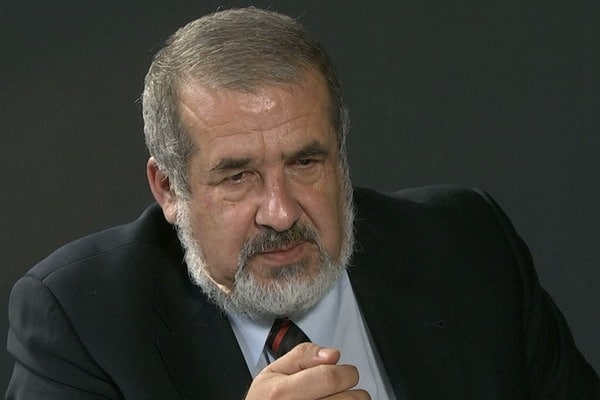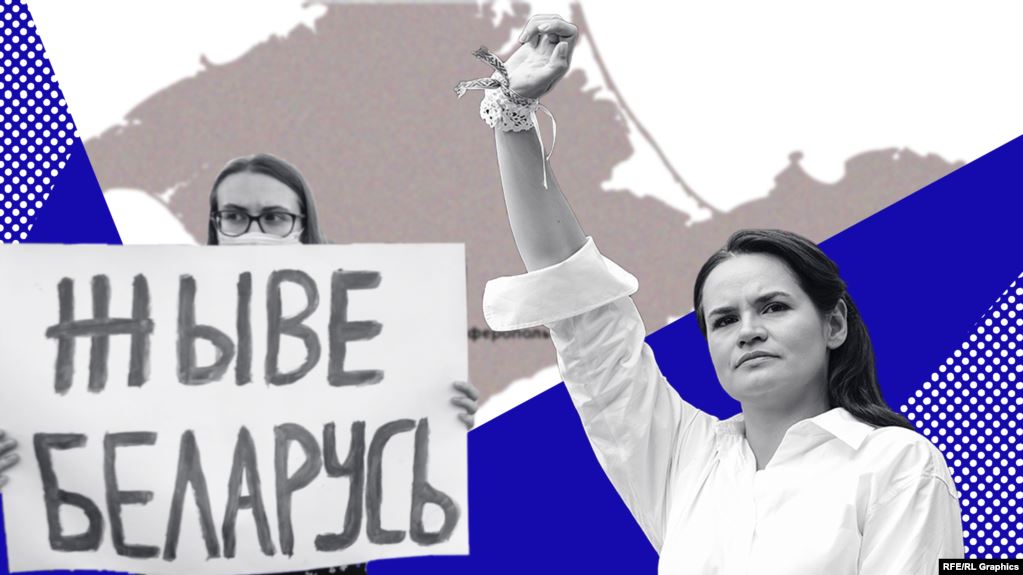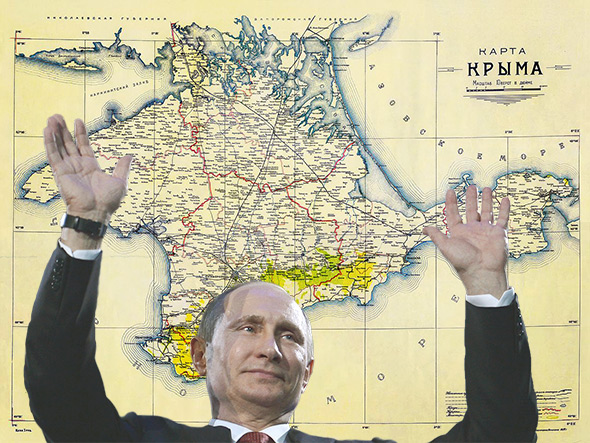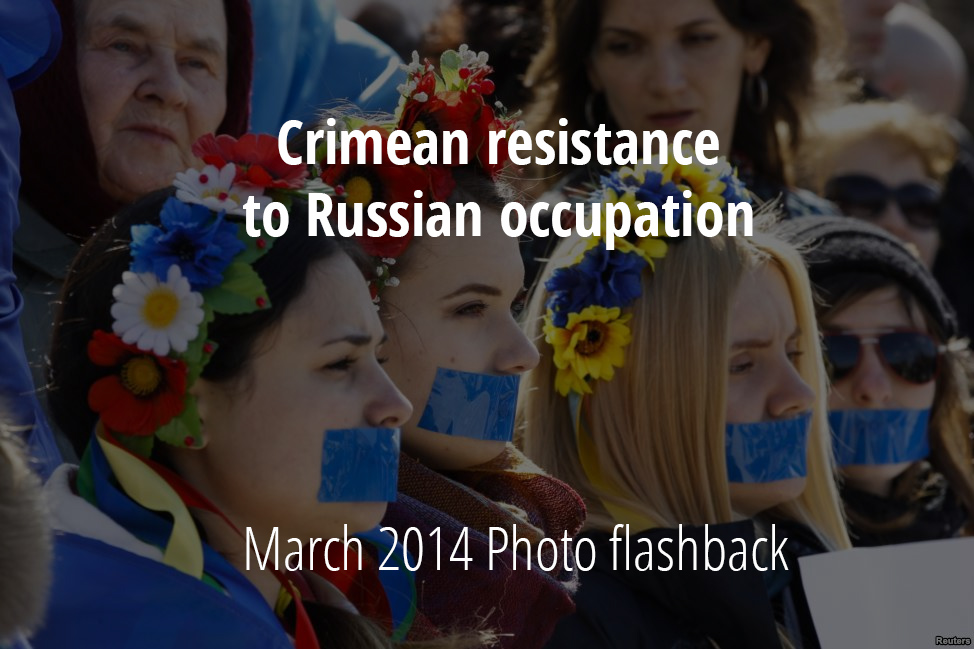While the first victims of Russian repressions in occupied Crimea were pro-Ukrainian activists who openly resisted occupation, today the punitive measures also fall upon journalists, bloggers, religious and national leaders, representatives of Ukrainian and Crimean Tatar communities, a recent report of Ukrainian human rights on human rights violations in Crimea states.
Their finding is corroborated by the report “Attacks on media workers in 2020” by the Justice for Journalists Foundation, a London-based foundation for international investigations of crime against media:
“The course [is] taken by the new authorities from the moment of the occupation in 2014 to totally suppress independent journalism and establish full control over Crimea’s information space continues.”

The lockdown restrictions were exploited to impede journalistic work: some 9 attacks connected with quarantine restrictions were recorded last year. In most cases, media workers were banned from attending politically motivated trials.

Server Mustafaev was arrested in 2018. On alleged terrorism charges, Mustafayev was sentenced to 14 years behind bars. His four little children miss their father.
Osman Arifmemetov, another Crimean Tatar citizen journalist, was also arrested on alleged terrorism charges. Abduction and torture followed his detention, Osman writes in his letter.

“Then three of us were put in a van with our knees and foreheads on the floor between the seats. The kidnappers were walking on our backs. Took us to a wooded area. They held my handcuffs and kicked me on the thighs, shins and buttocks with their legs. They kicked and bludgeoned me on the back of my head, causing me to lose consciousness several times.”
Osman is currently in custody. He is facing up to 20 years of prison.
The occupation authorities’ crackdown on independent media is isolating Crimea and allowing the almighty of the state to act with total impunity. With the Fourth Estate erased from the peninsula, its inhabitants are deprived of any leverage in the militarized land.
In the Freedom in the World 2020 annual report by Freedom House, Crimea was referred to as “not a free territory,” scoring 8 out of 100 points, which is only four positions above North Korea. The situation in another Russian-occupied territory, Eastern Donbas, is even more dramatic — it scored 4 out of 100.
Specific examples are provided in the book “The Press: how Russia destroyed media freedom in Crimea” by Ukrainian journalist Yuriy Lukanov. He presents evidence from more than 20 media workers and NGOs about the variety of tools employed by Russian occupation authorities to curtail the freedom of the press in Crimea.

These include citizen journalists being intimidated by physical assault, destruction and seizure of media equipment, arbitrary detentions, forced disappearances, tortures, refusal to grant accreditation, fabricated criminal charges etc.
As an illustration, in 2017, the veteran of Crimean journalism Mykola Semena was sentenced to two years in prison and two years of prohibition to involve in professional activities on alleged “calling to violate the territorial integrity of Russia using the media” in his article for Krym. Realii Radio Liberty project covering developments in the peninsula after the occupation.

Alas, Yuriy Lukanov’s book is far from comprehensive, as new attacks on journalists continue each day. A recent example is the arrest of Vladyslav Yesypenko, an RFE/RL freelancer who was apprehended upon filming a flower-laying ceremony at the monument to Ukrainian national writer Taras Shevchenko in occupied Crimea and stands accused of espionage. In a series of harrowing letters, Yesypenko described the blood-curdling torture methods the FSB employ to extract “confessions” from their victims, including electrocution with increased dosages.
In a nutshell, what does an attack on freedom of the press in Crimea look like in practice?
As the Executive Director of the Institute of Mass Information in Ukraine Oksana Romaniuk points out, Ukrainian channels and internet sources are blocked and Ukrainian journalists in Crimea are deprived of their licenses. Instead, Russian journalists monopolize the media landscape in the peninsula.

Oskana Romaniuk. Photo: RFE/RL
“There can be no question of nationals’ freedom of choice while their right to information is blatantly violated,” she says.
The work of independent Crimean journalists and bloggers covering the bleak reality in the peninsula packs a punch for Moscow. And its response is merciless. For instance, in March 2019, in one day, almost all activists of the Crimean Solidarity, a movement for protecting victims of the Kremlin’s repressions, were arrested.
However, these measures fall short of their goal. In the opinion of Lutfiye Zudiyeva, coordinator of Crimean Solidarity, an organization established in 2016 to help the victims of Russian repressions in Crimea, the repressions have only galvanized the cooperation and mutual assistance of victims.

Zudiyeva, who, being a citizen journalist, had received intimidating warnings about the prohibition of “extremism” from the police, says that despite repressions, her organization keeps drawing new volunteers (emphasis ours):
“They very much love their peninsula and want to stay, they fight for their rights to live in this land.
Also, citizen journalists realize there are specific human rights violations in Crimea which need highlighting.
Were this job performed by professional media workers with safe access to Crimea, such activism [the phenomenon of Crimean citizen journalism] would not have been this strong.”
The most popular form of pressure on Crimean journalists is criminal actions based on charges of extremism, terrorism, incitement of discord, rehabilitation of Nazism, state treason, and calls to overthrow the constitutional order.
Such charges, according to Gennady Gudkov, former deputy chairman of State Security Committee at the Russian Duma, are “dragged in by the head and shoulders,” in part to execute the state plan and show off the “titanic success” of Russian security services.
Other purposes of falsified cases of the said charges against Crimeans are to discredit activists and journalists and sow fear within the population. The fact that first, no control over Russian security services are exercised and second, no independent expertise in the state exists, provide the FSB with all opportunities to convict those who disagree.
Russia is actively turning Crimea into its military base. For that, it needs a loyal population easy to manipulate, stresses Ukrainian human rights defender Oleksandra Matviychuk. That is why “the policy of forcible replacement of the [Crimean] population with Russian nationals is occurring. Meanwhile, Russia is carrying out reprisals, so that the active part of Crimeans flees.”
In these obviously political cases, the fate of defendants is predefined. Suspects end up being sentenced in almost each and every case, regardless of exculpatory evidence.
“You arrive at the building, see the word ‘court,’ a judge in a robe, but these are all stage props which have nothing in common with the concept of impartial justice. Everyone and their mother, from the bailiffs to the judge, know that it is not them making the decisions – it is a top-down ruling,” Matviychuk describes politically motivated trials as nothing but “simulacras.”
Read more:
- Seven years of occupation of Crimea: human rights activists systematise human rights violations on peninsula
- Pull off a kangaroo court in five easy steps: a how-to guide from Russia
- Freedom of press infringed by armed Donetsk separatists in Eastern Ukraine
- Luhansk separatist republic adopts law to legalize prosecution of press freedom
- (No) right to a fair trial, or a manual to Russia’s conveyor of repressions in Crimea
- The attack on media freedom in Crimea threatens to stop coverage of rights abuses








